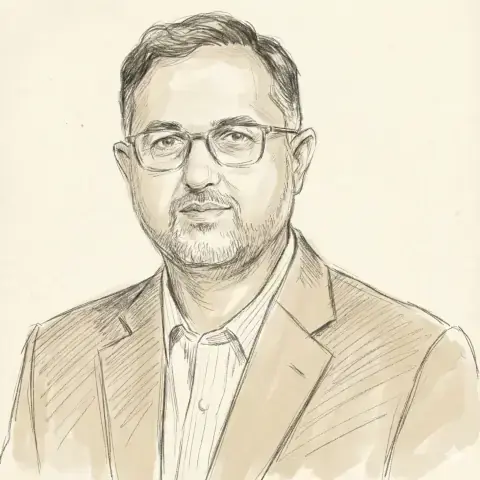ISLAMABAD: Afghan Taliban on Thursday said that their former deputy chief Mullah Abdul Ghani Baradar had been set free by Pakistani authorities.
“It is stated with great pleasure that former deputy of the Islamic Emirate Alhaj Mullah Abdul Ghani Baradar, who had been imprisoned in Pakistan for the last nine years, was released from jail,” a Taliban spokesman said in a statement sent to media. It did not say when he was released and whether or not he had returned to Afghanistan.
Take a look: Mullah Baradar`s capture
The statement noted that he was “healthy” and that “no compromise” had been made to secure his freedom.
Foreign Office spokesman declines to comment on report
Reports about Mullah Baradar’s release had been doing the rounds in the media for a couple of days, but Pakistani officials had not been confirming it. Foreign Office spokesman Dr Mohammad Faisal, when contacted, declined to comment.
Mullah Baradar was the deputy head of the Taliban movement in Afghanistan at the time of his arrest in a joint ISI-CIA raid in Karachi in February 2010 and was believed to have then been working for a political settlement.
Also read: US request to hand over Baradar turned down
The Afghan government has in the past as well been demanding his release for facilitating the peace process. His release was advocated as ‘a game-changer’ and ‘Afghanistan’s best hope for peace’.
Five years ago, even Pakistan had officially announced Sept 21, 2013, as the date for Mullah Baradar’s release. He was then supposed to be the first Taliban prisoner to be set free by Pakistan under the revised mechanism agreed between Islamabad and Kabul at the Chequers Summit for the release of the detainees associated with the Afghan insurgent group. There was then also talk about sending him either to Turkey or Saudi Arabia so that he could contribute to the talks’ process. However, due to unknown reasons he was not released on that occasion.
His release has now appeared to have taken place after a meeting between Taliban representatives and the newly appointed US envoy for reconciliation in Afghanistan Zalmay Khalilzad. Analysts have been attaching importance to the Taliban-US contact in Doha, where Taliban’s political office is based.
Later, deputy prime minister and foreign minister of Qatar Mohammad Bin Abdul Rahman Al Thani visited Islamabad during which he met Prime Minister Imran Khan, Foreign Minister Shah Mehmood Qureshi and Army Chief Gen Qamar Bajwa.
After the meeting at GHQ, the Inter-Services Public Relations had said: “Matters of mutual interest including regional security issues were discussed”.
Gen Bajwa had then assured the Qatari foreign minister that Pakistan would continue to positively contribute towards regional peace and stability.
FO spokesman Dr Faisal, speaking at the weekly media briefing on Thursday, said: “Pakistan and the US are currently engaged, along with other regional stakeholders, to pursue a political settlement in Afghanistan.”
He further said: “It is important to reiterate that Pakistan’s cooperation with Afghanistan and the international community to bring about lasting peace in Afghanistan is borne out of our firm belief that a stable Afghanistan is vital for eliminating the menace of terrorism inside Pakistan and the region in general.”
Some analysts think that being a senior and well respected figure among Taliban, Mullah Baradar could contribute to the peace process. Others have been skeptical and say that his influence among the insurgents had declined significantly because of changes in the Taliban structure and his prolonged detention in Pakistan. It would, they insist, depend on how he is integrated in the hierarchy of the insurgency.
Dr Faisal denied any pressure on Pakistan for cooperating for peace in Afghanistan.
“There is no question of any country applying pressure on Pakistan for something which we believe is in our own interest. Our foreign policy is based on principles of peace within and peace without. In all our domestic and external pronouncements, we are guided only by Pakistan’s national interest and prosperity of the people of Pakistan,” he said.
The spokesman reminded that there was a consensus in the country that a peaceful and stable Afghanistan was in the economic as well as strategic interest of Pakistan.
“In pursuance of this conclusion, in the past two years, Pakistan made deliberate efforts, including multiple leadership and high-level visits to Afghanistan to improve its relations with Afghanistan and constructively contribute to its peace and stability,” he added.
Published in Dawn, October 26th, 2018
Download the new Dawn mobile app here:



































